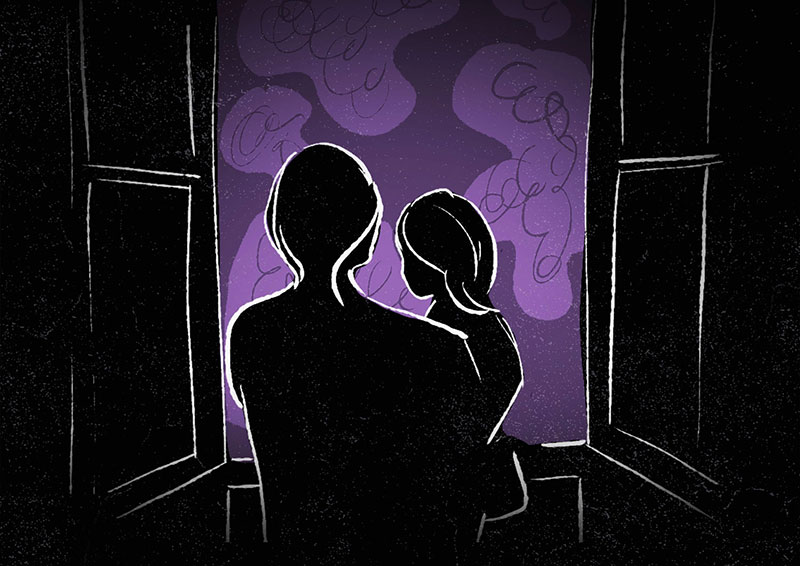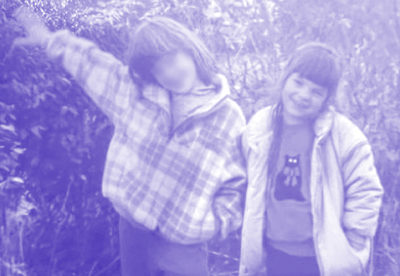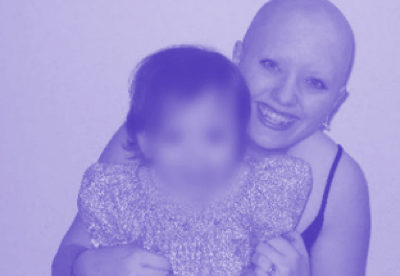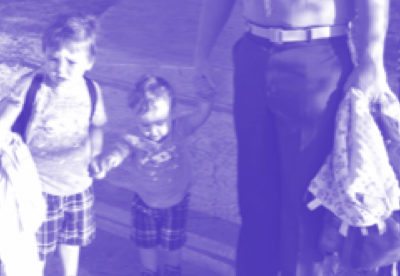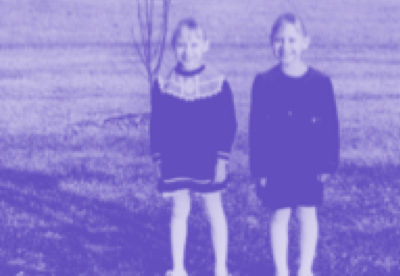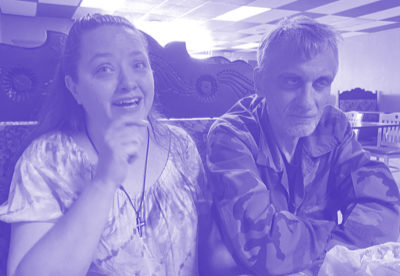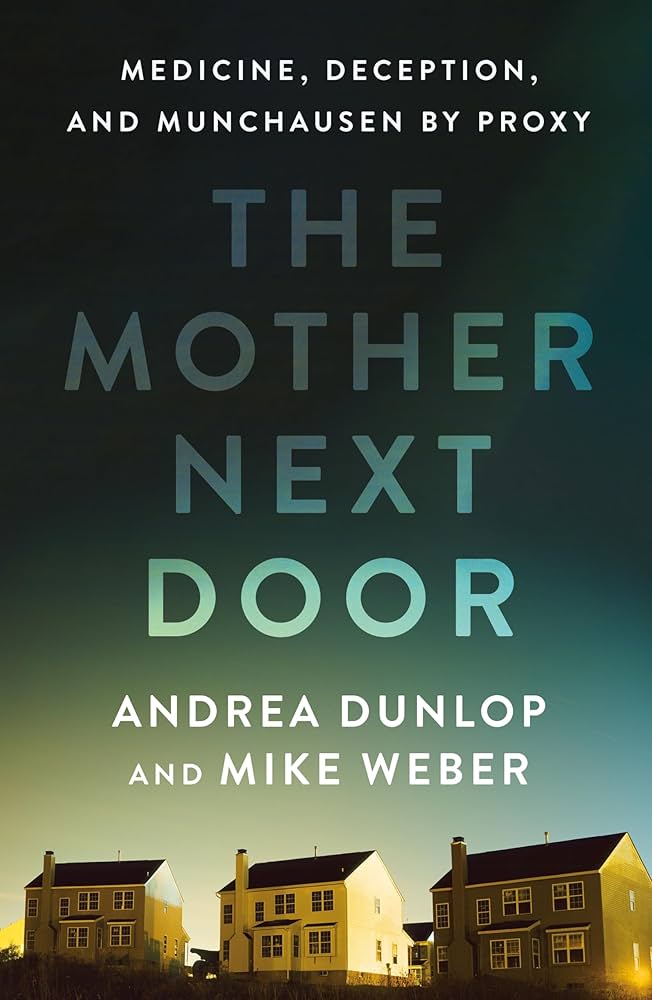SEASON 03 | EPISODE 14
Media Circus
This week Andrea examines how the harrowing and complex story of the Maya Kowalski case turned into a pop culture moment, and spread dangerous misinformation in the process.
We continue our conversation with Ethen Shapiro, lead attorney for Johns Hopkins All Childrens, about how the media coverage of this case got so out of hand and the risks it poses to doctors and children going forward.
We take a deeper look at how entertainment reporter Caitlin Keating stumbled onto the story at her job at People Magazine, and despite her questionable grasp of medical child abuse issues, made a movie about a complicated case that was subsequently viewed by millions of people.
Andrea shares revelations from Beata Kowalski’s blog, written disturbingly in her young daughter Maya’s voice, and wonders how anyone can ignore its terrifying contents.
Stay tuned for a sneak peek of our exclusive interview featured in our season finale.
Host Andrea Dunlop:
https://www.andreadunlop.net
For behind-the-scenes photos:
https://www.instagram.com/andreadunlop/
Support the show and get exclusive bonus content:
https://patreon.com/NobodyShouldBelieveMe
For information and resources:
https://www.munchausensupport.com
The American Professional Society on the Abuse of Children’s MBP Practice Guidelines can be downloaded here.
More about Dr. Marc Feldman:
https://munchausen.com
Read Beata’s blog: https://drive.google.com/drive/folders/1FpSFjvX_8WB5cgPCI0E_cpXj1jaeVcC4?usp=drive_link
Megan Fox YouTube interview with Gregory Anderson: https://www.youtube.com/watch?v=22eytc7v8oc&t=9693s
Kat and Nat Unfiltered: https://catandnat.ca/new-blog/hhttps/openspotifycom/take-care-of-maya-with-caitlin-keating
Guys We Fucked podcast: https://www.youtube.com/watch?v=nlbosK25e7U
[00:00:00] Nobody Should Believe Me is a production of Larj Media. That’s L A R G Media.
Before we begin, a quick warning that in this show we discuss child abuse, and this content may be difficult for some listeners.
People believe their eyes.
That’s something that actually is so central to this whole issue and to people that experience this, is that we do believe the people that we love when they’re telling us something. If you questioned everything that everyone told you, you couldn’t make it through your day.
I’m Andrea Dunlop, and this is Nobody Should Believe Me.
If you’d like to support this show You can join us on Patreon, or subscribe on Apple Podcasts. You’ll get all episodes early and ad free, as well as lots of exclusive bonus content.
If monetary support is not an option, rating and reviewing the show helps a ton, as well as sharing on social media or wherever you talk to people.
If you or someone you know is suffering from medical child abuse, please [00:01:00] go to Munchausensupport. com. We have lots of resources there for survivors, families, and professionals. We also accept donations if you would like to help us continue to do that work.
And we love hearing from you, so do reach out. Our email is hello at nobodyshouldbelieveme. com. Or you can leave us a voicemail at 484 798 0266, and we may use that voicemail in the show, so please be sure to let us know if you do not want us to do that.
As we’re recording this, I am 11 episodes into what I started off thinking would be maybe a two part episode on the film Take Care of Maya. I have found with this case that every time I get out of one rabbit hole, I just immediately find another one to go down. And I’m one of many people who are not a party to this lawsuit, but have nonetheless gotten extremely wrapped up in this story.
And the media [00:02:00] coverage of this case has been overwhelming. This is the highest profile medical child abuse story that I’ve ever seen. And where I’m standing right now, it honestly feels a little lonely. You know, I am an independent podcaster. I feel extremely lucky, honestly, that I’m able to devote so much time to pursuing this case.
I understand that that’s not a luxury that most people who are reporting on it have, and at the same time, you know, I’m not the New York Times. I don’t have a big media organization that I’m a part of and I feel a little out on a limb with all of this. You know, with a couple of exceptions, I haven’t seen a lot that’s really been questioning the dominant narrative of the film, you know, the one that began with Daphne Chen’s reporting on the case for the Sarasota Herald Tribune years ago, um, [00:03:00] that has now been amplified to the tune of tens of millions of viewers, and this story about it.
A mother who’s been wrongly accused of child abuse and was driven to suicide by this heartless conspiracy of doctors who just wanted to punish her and commit insurance fraud, like, that basic narrative has been very sticky. And the deeper I get into the evidence It just seems like pure fiction. I can’t understand how it’s holding up for anyone else who’s actually looking at the facts in the case.
And right now, it seems to be holding up for most people. So is what we’re watching a news story? Or is this, like, one of the greatest PR coups in history? Because it’s all making me feel a little bonkers. So how did A narrative that is so utterly divorced from the facts of the case gains so much steam.
Well, it turns out, [00:04:00] this was the perfect setup for it. Because if you want to lie about someone in the media, you can get an awful lot of mileage out of picking someone who can’t fight back. Especially if that person happens to be prohibited by law from fighting back. And I want to say here that I realize lie is a strong word, but it’s the one I’m going with at this point, because after all of these months of research, I realized that what’s been said about this case in the media and in the film is not just obfuscation or omissions.
It’s not just an imbalanced perspective, it’s lies. And I know my producer Tina hates it when I say that we’ll get to that, but my lawyer does need me to say it sometimes, so we’ll get to that. We spoke to Ethan Shapiro, one of the lead attorneys for Johns Hopkins All Children’s, about how these stories can get out of hand in a big way.
I think a case like this can set a precedent, and in fact a very dangerous precedent, specifically in cases involving [00:05:00] healthcare providers, because when you look at the asymmetrical warfare that can be waged by somebody like Mr. Anderson. On behalf of his client, putting this case in the media beforehand, but refusing to sign a HIPAA waiver so that when news outlets reach out to my law firm and are asking for comment on behalf of my health care provider, whether it’s Johns Hopkins All Children’s Hospital or any of the number of clients that I represent or that Anybody representing healthcare providers would have to respond to we’re handcuffed about being able to tell our story to the media without a HIPAA waiver.
So for example, in a case like this, if the Kowalskis want to say X, Y, and Z happened to them at the hospital, I could have irrefutable proof that that’s false. But unless they’re going to sign a waiver for me to be able to put that in the media, we have to wait till trial to tell our story. And the impact of the film made it all the more important that the public get a chance to hear [00:06:00] the truth about this story.
For the defense team, this definitely was an important case for us to stand up for mandatory reporters, especially in the face of the Netflix movie. I understand why Netflix would want to make a movie with a one sided narrative because it drives ratings and clicks. Mother allegedly medically abusing her daughter is page five of the local paper, fortunately or unfortunately.
Hospitals in states kidnapping children is front page news that’s going to scare a lot of people, uh, whether the evidence supports that or not. So the fact that that narrative was irresponsibly put out by Netflix prior to the trial and their decision to ignore what they had in terms of transcripts that would have refuted their narrative.
was something that was important for the defense to be able to refute and to be able to put forth evidence that not only was the medical decision making based on evidence based medicine, but the physical out from for Maya had improved substantially, which is [00:07:00] something that Netflix had ignored and apparently intentionally ignored throughout their coverage.
So the actual trial, which was big enough to be televised, was the one chance for the truth to come out. But, thanks to the rulings made by Judge Hunter Carroll, barring the defense from presenting evidence about medical child abuse, that never happened. So no wonder that the narrative of Take Care of Maya ultimately won the day.
You know, even Court TV, who aired this trial, they didn’t call it the Kowalski v. Johns Hopkins All Children’s trial. They called it the Take Care of Maya trial. You know, it just felt like continuing coverage from the film. Like, that is the extent to which the film and the case itself have become intertwined.
You know, honestly, there’s always this part of me that wants to believe that when people put stories like that out there, you know, these stories that really are attacking doctors and putting kids in danger, are just [00:08:00] doing so because they don’t know any better. They don’t really understand what’s happening in these cases.
They don’t know the truth. But in the case of this film, That defies credulity. My disappointment with the Netflix movie was that the producer had the same information that I had. They obviously don’t have internal legal memoranda, but it was clear that they were able to excerpt deposition clips. So for example, they played very short attention to the idea of Maya’s recovery post all children’s hospitalization.
Um, you know, specifically excerpted deposition clips from Maya’s March 2022 deposition where I asked Maya, you would agree with me that you’re doing that better now from a pain perspective than you were prior to going to All Children’s and she to her credit, answered very honestly, yes, that she’s doing better today than she was in 2015 or 2016.[00:09:00]
That would have been a very easy excerpt to put into the movie that would have given a completely different narrative and would have left the question with their audience, why has Maya made a very good recovery if the standard of care according to their experts was Ketamine upon ketamine. And so that was one of the many things that I thought that Netflix intentionally overlooked in order to pursue a narrative that would have been better for their ratings.
According to Kaitlin Keating, the film’s producer, she was extremely deep into this case and did her best to be balanced. So here she is talking about her role in the film in an interview with the Kat Nat podcast. It was beyond just being a producer. I think it was being like a journalist. and a storyteller and just really caring from the very beginning.
Like before we even started filming, it was just getting to know the family. It was going through thousands of hours of depositions from both sides. So it was like really trying to get the [00:10:00] hospital’s perspective. And as to the question of whether the Kowalskis participated in making this film because they wanted to win their lawsuit, here’s what she had to say.
I think it was that they just, they want to speak out for other families, and they really just want justice. Like, um, they just want to, they just want to stop this from happening to other people. I mean, here’s the thing. I do have this worldview where I think that the facts are going to change people’s minds.
And where I think that people are going to be open minded, especially people who are like in these kind of similar roles to myself, right? Like I think people who are, people who are working in publishing, people who are working in the media and filmmaking and making podcasts and stuff are going to be kind of these like, because this is, this is actually pretty true to a lot of my life experience, are going to be these open minded, empathetic people.
They’re really looking for the capital T [00:11:00] truth. And it always sort of shocks me when people are presented with something this complicated and actively suppress half the story. I don’t know how people Do that. I don’t know how they do that and sleep at night. I really don’t. I mean, I, because I wouldn’t be comfortable doing that, right?
Like, I mean, I’ve spent, and again, I’m, I realize that I’m able to devote, like, more space to the nuance of all of this than most people get to, and that’s a privilege. And at the same time, I wouldn’t have felt comfortable going into this case and just making assumptions about it and like not doing my due diligence and reading all those depositions and seeing like is there something here that I’m not seeing?
Did the doctors do something wrong? Is Beata just an anxious mom who got bad advice from a doctor? Like I really openly considered all of those things and they [00:12:00] just didn’t turn out to be true. But that’s not the same thing as just leaving out half the story. And to that point, Caitlin Keating said, separately in this interview, that they used the video of the depositions that these doctors did, that they had access to, to make sure that the hospital’s side of the story got told.
So as I’ve seen, there is a lot to work with from just the depositions in this case that happened, you know, long before the trial was on. And not to brag, but I’ve read at least a thousand pages of depositions. Affidavits and other public documents just from the doctors and all of these were available to Keating and she talks about going through them.
So the interesting thing about these pre trial documents is they actually gave a better picture in many ways than what we ended up hearing in court. What you can ask somebody at a deposition goes Far beyond what is admissible
testimony, okay? So, uh, you can ask [00:13:00] somebody a lot of questions at a deposition that may not be admissible at trial, and the test for admissibility at trial is much more narrow.
So, she had a lot to work with. But to say that she used this information to present a properly balanced picture is just laughable. I mean these depositions that these doctors gave were in some cases days long and the grand total time in the film that was devoted to them clocked in at just under three minutes.
Out of an hour and 43 minute runtime. But you know, why mess up a good story with the truth? But what Netflix sold very successfully was all American family came in with a rare diagnosis and, you know, I guess, minorly to their credit they gave a little bit of work to, you know, the idea that this diagnosis was in dispute.
But what they played up was that [00:14:00] the reaction from the hospital was we are reporting you to DCF and taking away your child. What they skipped, what they skipped, was a phone call was made, an abuse investigator was assigned, the police were assigned, the abuse investigator assembled records from multiple organizations.
Then they petitioned a court in Sarasota County. The Kowalskis had five lawyers to dispute that charge. And that all of that resulted in a process where a judge, hearing the evidence, decided to shelter Maya. The story they told is the one of fear. So early on in the season, I reach out to Caitlin Keating for an interview.
She sent me on to the film’s publicist, they ghosted me, pretty much like everyone else I reached out to on that side. I’ve followed up with her for comment on some specifics, more recently, and I’ll keep you posted if she answers. I confess, I’ve become a little bit fascinated with her. Because unlike some of the kind of far [00:15:00] right, parents rights crowd that has been supporting this case.
Caitlin, at least from what I’ve gleaned from her interviews, is kind of a, you know, artsy, coastal, liberal, feminist type, which is highly relatable for me because I am as well. Like, this is someone that I very easily could have met at a cocktail party when I was in New York and we probably would have gotten along just fine.
Um, It’s the involvement of people like Caitlin Keating and also like Diane Meary who wrote the piece that ended up going viral on this story for the very
left leaning New York magazine who were instrumental in making this whole story palatable to people on the left where it’s also found a lot of support.
So what do we know about Caitlin Keating? This is her first documentary, she’s in her mid 30s, and according to her LinkedIn she lists as two of her top skills journalism and Fact checking. So before becoming a film producer, Keating held jobs at People Magazine, which probably [00:16:00] explains why Maya also got that flashy cover story, um, Fortune, the New York Observer, and she appears to have started her career as a fashion intern at Vogue.
So, just a note here, you know, I spent my 20s working as a book publicist in New York, so I know the context here. A background like this means access and connections. Being a person myself who comes from a huge amount of privilege, I have a very particular animus for other people who come from privilege using it so irresponsibly.
And her background as an entertainment journalist might help explain why this, which is a case with deathly serious implications, has basically become a pop culture story. And as we were wrapping up our interview, we got into this. That was the part that people were trying to clue me into when people would reach out to us for comment.
They would say, that’s an investigative journalist that’s interested in the story, versus, [00:17:00] there’s an entertainment reporter that’s doing a story on the Netflix movie. They’re not covering the trial. On the take care of my trial. Right. So they’re, so they’re covering They’re writing a review of the Netflix movie and they’re reaching out to the lawyer for one of the people in the Netflix movie asking them for comment on what’s going on because they want a soundbite while they write what’s basically a movie review.
So how did Caitlin Keating even find this story? Here she is during an interview with the sex positive feminist podcast, Guys We Fucked, explaining. Yeah, um, so I was working at People Magazine. I’d spent most of my 20s there doing exclusive human interests and true crime stories across the country, and I was actually doing research for another story when I came across the story in the Sarasota Herald Tribune, which was about the Kowalski family.
And I, you know, So every story that I did at People was incredible, but I didn’t really see it as a film. And with this, when I heard about the archival [00:18:00] that existed, um, I was also itching to leave. I really wanted to get into documentaries. I remember just going into a conference room because we had like an open floor plan, so I couldn’t, you know, call anyone, um, about it.
Um, in the moment, you know, for something that wasn’t for people, but right away I knew I went into the conference room, I called the lawyer, Gregory Anderson, who’s in the movie, and we talked for like three hours. And that weekend I flew out to Sarasota, I met the family, and I quit my job like two months later.
So, according to Keating, part of the reason this story really resonated with her is because she has celiac disease. And this was a diagnosis that her parents had some trouble getting to the bottom of when she was a child. I think this is a lens that a lot of people see this case through, and it’s part of why I’m You know, it’s getting sympathy from such a diverse group of supporters.
The reality is, many people have had frustrating or downright awful experiences with the healthcare system. So, you know, Kaitlyn Keating’s interviews more or less echo what the film said. The hospital was conspiring against the Kowalskis out of revenge and greed, [00:19:00] and of course, Dr. Sally Smith was the biggest villain of all.
Needless to say, Keating’s grasp of what a child abuse pediatrician, like Sally Smith does, was a little hazy at best. Yeah, um, the people that are doing it right, like there are some states now that are like trying to pass laws where like it’s a, it’s a team decision if a child is being abused. Right?
Because it’s like, it normally comes down to this profession, this child abuse pediatrician, they have them all over the country, who’s a pediatrician, and then, She or he takes an exam, basically, to now specialize with child abuse. So a kid comes in and it typically comes down to their decision if this is child abuse or not.
But it’s like, they’re not a neurosurgeon. They’re not, you know, it’s like, I feel like Are they even a psychiatrist? No. So I think there’s a, I think, and a lot of people think that like, this, people just need to reexamine the system and how decisions are made. Cause again, it’s like, you don’t want to be wrong and miss it, but you [00:20:00] don’t want to accuse someone who’s innocent.
So it will definitely take a team of people to make. So just to clarify here. Though there was an initial group of pediatricians, including Dr. Sally Smith, who came in with extensive previous experience in child protection work, who were allowed to sit for the initial exam in 2009 and become the first physicians to hold the subspecialty, that happened 15 years ago.
These days, becoming a child abuse pediatrician requires a three year fellowship, This is following the already four years of medical school and a three year residency, and then they can sit for the exam. And in fact, this is part of the reason there aren’t that many of them. There are only about 350 child abuse pediatricians in the country.
Most child protection teams are headed up by pediatricians who don’t actually have that subspecialty, or in many smaller hospitals, nurse practitioners. And I also wanted to address this question of team decision making. Child abuse pediatricians and other people who run child protection teams [00:21:00] regularly consult experts as needed, they spend extensive time researching and speaking to other doctors, and you know, You can see in the documentation and in her depositions that Dr.
Sally Smith did all that in this case. And it’s also worth reiterating that the medical evaluation is one piece of a complex picture in all of these decisions that happen about custody and criminal charges when there’s a suspicion of child abuse. So, if Kaylin Keating ever spoke to anyone who’s knowledgeable about medical child abuse, she hasn’t said, but she certainly didn’t feature any in the film.
She left that job to the defense attorney for the Kowalskis, Deborah Salisbury, who explained it honestly as though it was not a real thing. And this isn’t a guess, this is a stance we now know was shared by the plaintiff’s attorney and several of the doctors who testified for them. And as far as child abuse pediatricians or anyone who’s working as the head of a child protection team goes, they are even more vulnerable to bad [00:22:00] treatment in the media than other doctors.
Ethan Shapiro explained why Dr. Sally Smith made such an easy target. She’s in a very unique situation as not just being prohibited by HIPAA from sharing some of her findings, but there’s an extra layer of protections under Florida statutory immunity for DCF and Department of Health workers. So her ability to tell her entire story is also shielded and is somewhat at the mercy of the Kowalskis in releasing the findings of her report.
To your question about whether Sally Smith is a lone ranger or whether her findings were corroborated by multiple other providers, you would find that answer in her very detailed report, which really was the essence of the dependency action. And what you do know in terms of your investigative reporting was that a judge in Sarasota County did find my imminent danger of necessary shelter at all [00:23:00] children’s hospital based in totality on Dr.
Smith’s report. I have been digging into the other cases that they lined up at the end of this film. All of these people who claim to have been falsely accused by Dr. Sally Smith. And believe me when I tell you there is not a child protection team doctor in the country who couldn’t get this exact same treatment.
And I don’t know if this message This threat was intentional on part of the filmmakers, but nonetheless, it landed. It is loud and clear. If you are in this position of making reports about child abuse this could happen to you. So, Caitlin Keating was the one to blow this story up. But where did it start?
I read Daphne Chen’s reporting for the Sarasota Herald Tribune about this story right at the beginning of when I was researching it. And looking back now with everything that I know about this case, it is utterly surreal to read. So, the narrative [00:24:00] was exactly the same as the films, and to the point that the production company that ultimately partnered with Keating to make this film, Story Syndicate, even used much of Chen’s exact language in their description of the film.
And notably, this original article includes a whole bunch of quotes from Gregory Anderson, the lead attorney for the Kowalskis in their lawsuit, and several from his wife and law partner, Laura Anderson. Gregory Anderson was a real character during the trial. He used very colorful, extremely inflammatory language a lot of the time, and he was extremely dismissive to many of the defense’s witnesses in a way that frequently was pretty misogynist.
Like reminding Bonnie Rice that she was, quote, just a nurse during this trial. So, according to his eponymous firm’s website, they handle a variety of things. Some products, law, fraud, a little bit of personal injury and wrongful death. It doesn’t seem that they have a specific focus on medical [00:25:00] malpractice.
However, he was involved in another medically related case that made some headlines. This is a story of a man who died in the hospital of COVID in Jacksonville, and his family had attempted to force the physicians who were treating him at the Mayo Clinic to use this outside protocol that was developed by a doctor there.
Again, kind of a Kirkpatrick type, not board certified in anything, um, using something that was pretty far outside the established medical science. A protocol that included the horse deworming agent, ivermectin, which became a bit of a thing during COVID. They tried to get a judge to order that the doctors at the Mayo Clinic needed to administer this protocol according to the family’s wishes.
So they ended up losing that lawsuit, but again, some interesting parallels there. So, Anderson has not been shying away from his moment in the spotlight with this [00:26:00] case. He has been doing lots of media rounds, and honestly, you know, that’s to be expected. This is a high profile case. Um, he did one very memorable interview recently on the YouTube channel of someone called Megan Fox, not the actor.
She describes herself as an investigative journalist, author, and broadcaster. So this November 27th interview, before which Anderson, by his own admission, appeared to have had a bit of wine, was wild. So here is a clip from that interview. I just saw in the chat, uh, BonBon wants to know, has the YouTube slash cameras in the courtroom made you realize any habits that you have that you didn’t know you had?
Well, uh, sometimes if I’m wearing the wrong boxers, I look like I’m picking something out of my butt. So my sincere apologies that you have to live with that image. Because I do as well. Um, and you know, I, I [00:27:00] appreciate that there is the occasional need for gallows humor in these situations that are so intense and so dark, but honestly, there are just some things that are better kept at the kitchen table, and I think it’s safe to say that one of those things is You know, laughing at internet memes of your opposing council.
Stop making grades! There’s more! Locals, you’ve got to put the Michael Jackson one back in because I can’t scroll up far enough to get it. But I want to show that one too. Here’s one. Uh, Shapiro is here crying in the shower before work. LAUGHING
It’s so beautiful. Knowing how this verdict is going to affect countless other kids and, you know, given the seriousness of the allegations that this family made against Johns Hopkins All Children’s and others. It’s just really something to hear the [00:28:00] lead counsel say things like this in a public forum.
So, uh, through the, I guess I shouldn’t tell them about the dog fart.
Or the, or the poop trail. Oh no, don’t do that. Okay, Jen says no, don’t do it. Don’t. Oh no. At some point later I’ll tell you about the dog fart and the poop trail. I regret to inform you that Mr. Anderson did eventually tell that story, and the tenor of this conversation did not improve over the nearly three hours that it went on.
Knowing how deeply involved Gregory Anderson was in the genesis of this film, it’s fair to draw a pretty straight line from lawsuit to film to verdict. So, I
have a pretty good idea about Gregory Anderson’s motives here. He stands to get 30 percent of a quarter billion [00:29:00] dollar verdict. But as far as the journalists and filmmakers who helped him and Jack Kowalski spin this yarn?
I don’t know. I mean, it’s baffling. Are they that cynical or are they just oblivious? Either one at this point seems unforgivable to me. And, with every layer that I’ve peeled back of this story, it just seems so obvious to me that Maya was in very real danger. And I don’t see how other people are not seeing it.
Especially the people, like the filmmakers, who are really, really embedded in this. You know, I can see it if you’re just covering one local news story that you didn’t look that closely. But for someone who spent years with this case, I mean, have these people read Beata’s emails? Have they read her blog? I don’t know.
So, about this blog. You know, we saw a couple of draft entries that were admitted into [00:30:00] evidence during trial, and honestly, we read you some of those, they were dismaying enough. At this point, I have seen the whole thing. I’m going to include a link to this document in the show notes, but I want to tell you, it’s a disturbing read, and I’ve redacted a number of the photos because I just don’t think they should be out there.
I honestly do not see anyone could read this and not be profoundly disturbed about what was happening to this child. So I’m not going to read any of these posts verbatim. There are hundreds of pages in this document and this matches up with some of what we’ve been talking about in terms of what we have seen in Beata’s, that’s actually come from Beata herself.
You know, the emails, some of these previous drafts of blog posts. So, I brought my producer Tina in and we’re just gonna sort of talk through in the big picture what’s in this blog [00:31:00] because it’s, it’s pretty striking and I think the volume of everything sort of stacking up the same way is part of what’s notable here.
It is a pattern, right? These are not just isolated incidents where her tone sounded weird or she said a weird thing. This is over and over and over again over the course. of this period where Maya allegedly had gotten this diagnosis. It wasn’t allegedly, she got the diagnosis, but she just got it from weird places.
Right, right. She did get, she did technically get a diagnosis. And of course, at this point, I’ve made it pretty clear that I don’t think this diagnosis was real because I think Beata was telling doctors already that she had it. There’s some
stuff in this, you know, that was notable in this, um, blog about that, about sort of like, she was clearly angry that the doctors hadn’t given her that diagnosis previously.
I mean, I think like one of the things that is the weirdest about this blog is its existence to begin with, [00:32:00] because she’s writing it in her nine year old daughter’s voice. So, was it posted during the time? Yeah, so she started. She was actually posting it in real time. She was posting it in real time from the summer of 2015 on.
So it starts really around the time that she’s going on this journey, right? That she has this time. There’s references to Tampa General Hospital, just spending time there. So is, and she’s basically channeling, I don’t know who the audience is for, maybe family and friends or something. But is she channeling Maya’s?
voice or something in this blog? She’s speaking as Maya and, you know, from, from talking to some other people who, who have worked with kids that have long term illnesses, you know, this is not an, this is not an unusual thing to do in terms of keeping a blog. Yeah, the only way you can keep everybody abreast of your child’s condition when you’re all in the hospitals like jot something down to everybody or email everybody at once.
A blog seems a little bit strange just in the sense that like why make it public but [00:33:00] okay. Yeah and I mean there’s some of these things where it’s like I think there’s a version of all of this that can be benign or even helpful to a family in terms of a way to keep people posted. You know unfortunately because of our how messed up our healthcare system is.
People are sometimes using it as a fundraising mechanism so that they can actually pay for the treatments their kids need. But I think this is so stark because number one, what’s not clear to me reading this is if the people who were, you know, you see some comments in the blog posts and those were interesting too.
So some of them, sometimes it’s from family members. So presumably the family members. reading it understood that it was not actually being written by Maya, but there are also strangers weighing in. So it’s like, did people understand that Beata was writing this blog or do they really think that Maya was writing it?
Oh, that’s weird. So to me, I think the most notable thing is how often death comes up and how early it comes up. But now if it’s in Maya’s voice, is she
saying, I’m gonna die soon? Yeah, so I’ll, I’ll read you a quote and this is from [00:34:00] October 15th of 2015. And so this is very shortly after her diagnosis from Kirkpatrick.
It says in the blog, I told my mom that day, I don’t want to live this way anymore. I can’t take this pain anymore. I wish I could just die. My mom responded to me that God is not ready for me yet and I need to be fighting hard to overcome this horrible RSD because God has a different plan for me. Okay, so one of the things that stands out about that to me is like, I just don’t know that it’s in a nine year old purview.
Now I’m not a child psychologist, but I just, I’ve never seen a nine year old that would even speak that way. Like, oh, I hurt so bad I want to die. That’s just not how kids think. Kids think it hurts so bad, I’m gonna yell. Right? Like they don’t say, kids just don’t say that. I don’t think so. And I mean, I’ve been around a lot of nine year olds and I agree.
I mean, I don’t know if maybe there’s some differences. It’s just a very strange thing for a nine year old to say. This is a theme throughout, again, right? I’m not just cherry picking a quote. So like you have this entry on, um. And we’re putting a link to this blog in [00:35:00] our show notes. Yes. You know, you have this entry from around the same time period where it ends with, um, again, this is in Maya’s voice, I’m losing hope and often I ask God to let me die because I cannot handle this anymore.
This is not fair. I don’t want to live this way anymore. I would rather die. Like not how a nine year old thinks. I mean, I, I want to give it some room in the sense that like, okay, like this is a child who was. Having you struggling a lot, but yeah, yeah. But it’s not, it’s not her talking. I mean, that’s the thing is like, it really, it really messes with your head because you’re sort of like, oh, you sort of get a little bit lulled into thinking this is really Maya writing it, but it’s not.
Like, I think part of the resistance to all of this is because people don’t want to sit with the idea of a mom sitting down at her computer and writing this in her daughter’s voice. Yeah. And like, you need to sit with it. You need to sit with, would you as a mom, or as a human, like, ever do this? Right. So, again, this is [00:36:00] from November 10th, so this is very early in the diagnosis, and she’s talking about the ketamine coma.
The ketamine coma comes up right away. They clearly, this also is in the emails, they clearly went straight for the ketamine coma. And so it says, There is no guarantee. There are huge risks involved. One of them is not waking up
ever from the coma. Even though that may sound very scary, the alternative of living in constant agony of pain seems like a better option to me in the end.
So she’s sitting there writing in her nine year old’s voice, Oh, here is my nine year old grappling with death. I’m sorry, but there’s nothing in me that can get my head around can’t. And it’s like, Obsessive, intricate details about dosages and side effects and situations. You learn nothing about who Maya is as a person.
There’s nothing about what she’s interested in, what she’s doing. Sometimes she talks about what she used to do that she can’t do anymore. But I learned more about Maya from listening to the doctors who were with her at Johns Hopkins and in Tampa General testify about her than I did from reading this entire blog that was written by her mother.[00:37:00]
Honestly, Reading this enrages me, and the reason it enrages me is because I’m so tired of people trying to position this behavior as normal, trying to make her look like a heroic martyr. And like, to me, like, Jack Kowalski, what is he thinking reading this blog when it’s happening? Like, what is he thinking?
You know, Gregory Anderson and Jack Kowalski. may have convinced Netflix to rewrite Beata as a martyr, but this version of Beata was always a mirage, and it just disappears in light of the words that she herself wrote. At
this point, tens of millions of people have viewed this film, and it has defined the public perception of this case. And You know, we’d love to believe that we have a justice system where none of this matters, but that is just utterly naive to think so. And Judge Hunter Carroll is an elected official, [00:38:00] and absolutely no one is immune from the effects of a national spotlight, not even the jurors in this case.
I’m not the only one who’s been watching this and understands what it all means. Ethan Shapiro knows what it meant. I don’t think people really understand how catastrophic this verdict is for mandatory reporting. I’ve been on multiple phone calls with healthcare providers of very prestigious hospitals and healthcare systems that don’t know what their next step is.
There are children who are sheltered at hospitals for months. There are not enough medical foster parents in this country willing to take them for better or for worse. And What next? It’s a devastating verdict for mandatory reporters and here’s why. The part that shocked me diving deep into a case like this was how many children across the country are abused or neglected, [00:39:00]
wittingly or unwittingly, whether they are brought in And one spouse is intentionally, you know, physically abusing a child or whether it’s a case where parents believe they’re pursuing the right course of therapy, but it turns out to be one that’s dangerous and unnecessary.
Hospitals are often the place where this is picked up and hospitals are often seen by the courts, not just in the Tampa Bay area, but across the country as a place of safe refuge. What do hospitals do now? If a hospital can be sued by an aggrieved parent who has their rights abridged or taken away by a court and then can turn around and sue a hospital for making the call or can turn around and sue the hospital for receiving medical care that the hospital believes is unnecessary and dangerous and says no we’re not going to put in a pump that we only put in.
terminal children. We’re not going to give ketamine at levels that are [00:40:00] 200 times evidence based medicine. If a hospital can be held liable for an aggrieved parent, then the grand bargain that the government has made with mandatory reporters has been shattered. If you’re going to tell a mandatory reporter, and Andrew, to be clear, we’re not just talking about healthcare workers.
These are police officers, firefighters. Cub Scout leaders, journalists, uh, teachers, crossing guards. If you’re going to tell them that we’re going to prosecute you for a felony, for failing to report a reasonable suspicion, but if you report it, that we promise you, you can never be prosecuted, you can never be held liable in a civil court for the phone call.
Well, what happens when a verdict comes down where a trial court allowed a hospital be prosecuted for the suicide of a parent who was upset that a trial judge acting on the report of Child Protective [00:41:00] Services, not the hospital, but Child Protective Services, and the mother in response ends up harming herself as a result of being separated for a child?
What happened to that bargain to mandatory reporters? Your question to me about What’s the reaction from the healthcare field? It’s trepidation. It’s fear. Can mandatory reporters still carry out their function knowing that an aggrieved family can seek a verdict that could financially paralyze that hospital healthcare provider from carrying out their local mission in the community?
Without a legislative fix to this. The 40, 50 years that have been built on mandatory reporting are going to be destroyed by this verdict. And I don’t mean to be that dire, but it’s true.
In a lot of ways, it was really clarifying to be able to talk to Ethan [00:42:00] Shapiro because I’ve been looking at all of this media coverage and so much of it has been celebrating the Kowalski’s win. And It’s made me feel crazy, but talking to Ethan also kind of confirmed my worst fears about the impacts that this is going to have.
You know, Take Care of Maya, as a film project, was a huge success for those involved, and it did what I think those people wanted it to do. It led to a quarter billion Kowalskis, which obviously Gregory Anderson is going to get 30 percent of. And it was a big successful debut documentary project for Caitlin Keating, it was a success on Netflix and for anybody else involved in the film.
And I know that the people who are going to pay the price for all of that are the children in this country who are already the most vulnerable. And [00:43:00] In speaking to my colleagues, many of whom have been working in this field for decades and have seen this pendulum kind of swing back and forth numerous times, I think we all know it’s not a question of if abused children are going to die as a result of this, it’s a question of how many and how many high profile deaths are like those of Olivia Gant and Garnet Spears that actually made the headlines.
How many of those is it going to take to wake us back up from this delusion that abuse is not happening every day in our communities and that doctors are in some kind of conspiracy to kidnap children from their parents? And I honestly wonder if any of the people who’ve written these stories, who worked on this film, who used their platforms to spread this story and cheer on this verdict, Any idea what they’ve done?[00:44:00]
Coming up on Nobody Should Believe Me.
Hi Sally. Good morning. Dr. Smith. Um, here we are in your supervillain lair. Yes, exactly. Um, so I I have been so anxious to talk to you.
Next week, we’re taking a little holiday break, but we will be bringing you a bonus episode. That will be my complete conversation with survivor Jordan Hope, who we spoke to earlier this season. And, we’ll be back in the new year with the first installment of our three part season finale that took us all the way to Tampa, Florida.
Nobody Should Believe Me is a production of Large Media. Our senior producer is Tina Nole, and our editor is Corine Kuehlthau.

